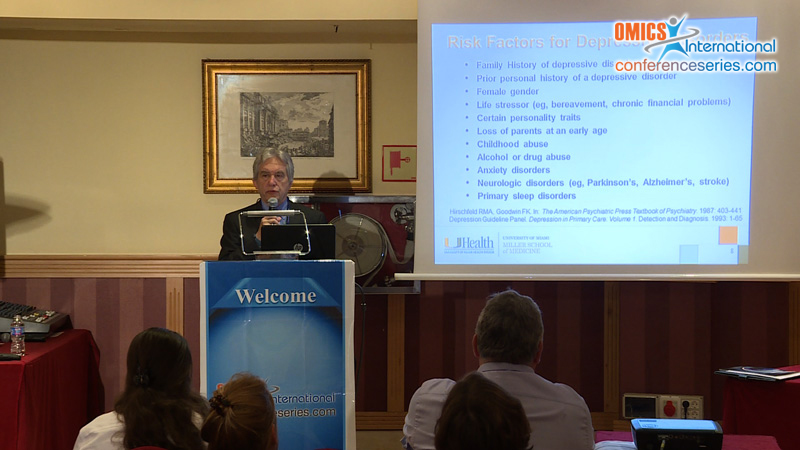
Biography
Biography: Charles B Nemeroff
Abstract
Severe psychiatric disorders are, based on recent data from the Global Burden of Disease Study, one of the most significant contributors to disability and disease burden. One of the major factors driving this finding is the absence of reliable laboratory or imaging tests to predict vulnerability, for diagnosis and for response to one or another of the effective treatments for these devastating disorders. This symposium will review the burgeoning findings on personalized medicine in psychiatry with a focus on identifying at risk populations for depression, bipolar disorder and the major anxiety disorders and the evolving data base on matching well defined endophenotypes with specific treatments. Thus, Charles B. Nemeroff (University of Miami) will discuss the long term consequences of child abuse and neglect and how this environmental factor interacts with genetic vulnerability to increase risk for depression and PTSD. The implications of these findings for current treatment as well as novel treatment development will be described. Felix Hausch (Max Planck Institute for Psychiatry, Munich) will describe novel findings on the FKBP5 gene polymorphism, its modification by epigenetic mechanisms and the development of novel small molecules with potential for treatment of PTSD and depression. Giampaolo Perna (Lake Como, Italy and University of Miami) will describe the currently available data on personalized medicine in anxiety disorders with a focus on panic disorder. Thomas Schlaepfer (University of Bonn) will describe how functional brain imaging studies have led to the identification of brain circuitry altered in mood disorders and how these findings have led to the development of deep brain stimulation (DBS) for management of treatment resistant depression. These novel research findings suggest that psychiatry will eventually become much more like oncology and infectious disease in being able to predict optimal treatments for individual patients.



